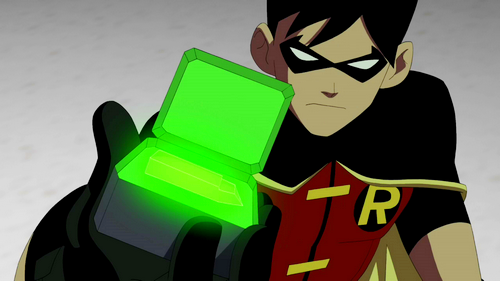Radical Markets: The Good, The Bad, And The Blockchain
/Glen Weyl is a researcher at Microsoft and the co-author of “Radical Markets: Uprooting Capitalism and Democracy for a Just Society” (Link). He also recently co-authored a paper with Vitalik Buterin and Zoë Hitzig. Earlier this week the Philly Blockchain Tech meetup, which I help co-organize, was lucky enough to have him as a guest!
In this post, I’ll share some thoughts on Glen’s proposals. In particular I want to touch on what I like about them (“The Good”), where I’m more skeptical (“The Bad”), and why I think they mesh well with the ethos of the emerging crypto culture (“The Blockchain”). If you’re not familiar with Glen or his ideas, check out the recording of his talk at Philly Blockchain.
The Good
To put it simply, Glen and his co-author are thinking big. These are not run of the mill calls for narrow reforms or slight tweaks to our existing systems. The proposals laid out in “Radical Markets” are, well, radical.
If nothing else, then, the book is valuable because it demands you imagine a world that is profoundly different from the status quo. It is “mind expanding” in that it forces you to reconsider your baseline assumptions, many of which you won’t realize you’re making until they’re illuminated.
The book is also refreshingly non-partisan, existing outside the bounds of the tired right-left battle lines drawn in our increasingly unbearable political sphere. No doubt, someone out there will try to force the ideas into one camp or the other, but an honest reader recognizes they are orthogonal to the trite, tribal arguments that have become typical.
As one example, how many authors have you read recognize the moral imperative for allowing broader migration, while also acknowledging the benefits of migration generally accrue to the wealthy and to the migrants— at the expense of the working class in the host nation?
Rather than descend into name calling or moralizing on this divisive issue, Glen and his co-author suggest an alternative system, wherein all members of society might benefit from migration. The citizen-sponsorship program for which they advocate struck me as perhaps the most workable of the book’s proposals.
That said, I also appreciated that Glen and his co-author “swung for the fences” rather than limit the book’s ideas to those which seem politically feasible.
The Bad
This leads to the simplest— but also least interesting— criticism of the ideas in “Radical Markets”, namely that they’re impractical. I say this criticism is uninteresting not because it’s wrong, but instead because it’s right, and Glen and his co-author know it. They acknowledge the ideas need to be tried in small scale experiments, and that much advocacy would be required before any broader adoption.
A slightly more interesting criticism of these ideas is that they’re too optimistic about the extent to which “mechanism design” can be employed to create or shape markets. While Glen and his co-author are in no way proposing a centrally planned system, there is still a whiff of the central planner’s hubris in the idea that more efficient markets can be designed, and better outcomes can be engineered.
As a Software Engineer, I’ve learned this the hard way. When rearchitecting even a simple system, one is often surprised by the second order effects of seemingly small changes. What’s true for software is even more so for society— there may be unseen reasons for so-called inefficiencies, and we may be surprised by the repercussions of trying to “design” them away.
One final piece of criticism I have is directed specifically at the idea of using Harberger taxes for personal property.
I asked Glen at the Philly Blockchain event if we might be missing a moral component to purely private property. Might there be some inalienable right— whatever exactly that means— to own outright the fruits of one’s labor? Is it morally wrong to, say, force an elderly widow to sell her house of 50 years— even if you’re compensating her fairly for it?
Glen’s answer to this question was that companies might spring up to provide services to handle such cases. For example, a company might cover taxes on a high valuation in exchange for inheritance rights to the property, thus decreasing the likelihood a widow would be forced to sell if she didn’t want to. This answer is reasonable, but perhaps misses the deeper point.
The Blockchain
What excites me most about the ideas in “Radical Markets” is their possible application to decentralized crypto-networks. Unlike our existing economic and political structures, we’re building the world of the blockchain from the ground up. It’s a great opportunity to question assumptions and experiment with new ways of doing things.
While I may be skeptical of applying Harberger taxes to property, for example, they could be a great fit for “ownership” of digital namespaces.
As we build new kinds of decentralized organizations coordinated by blockchain based interaction, Quadratic Voting may prove a useful mechanism for governance.
Blockchain enabled products could recognize “data labor” and compensate users for it— the Brave Browser and the Basic Attention Token may be a harbinger of this.
The possibilities are endless and exciting. Furthermore, such experimentation in the context of crypto-networks could help prove these ideas out, making them more viable for application in more traditional settings.
Even more fundamentally, I think the core premise of “Radical Markets” fits well with the spirit of the blockchain community. Glen and his co-author are clearly concerned about the increasing concentration of power found in the modern world. The impulse to find ways to diffuse that power aligns well with the ethos of decentralization which underpins crypto. I’m excited to see where these ideas might go.







